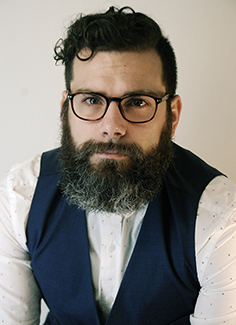Study
Copyright@ Australian Catholic University 1998-2026 | ABN 15 050 192 660 CRICOS registered provider: 00004G | PRV12008
Copyright@ Australian Catholic University 1998-2026 | ABN 15 050 192 660 CRICOS registered provider: 00004G | PRV12008

The concept seems to make perfect sense. After slogging it out at school for a dozen years, budding university students need time to breathe: a year spent volunteering, earning easy cash or exploring new places, so they return to study with fresh eyes and a thirst for knowledge.
One can certainly see the appeal of a year-long break to pursue new challenges and satisfy wanderlust. But amongst all these wonderful ‘pros’, are there also some hidden ‘cons’?
“Gap years tend to have this kind of mystique,” says Professor Philip Parker, Deputy Director at ACU’s Institute for Positive Psychology and Education.
“There’s this idea, going back to German classical literature, of taking a year off to wander the world and find yourself and all these sorts of romantic notions. But like many romantic notions, there are a few harsh realities that need to be taken into account.”
Professor Parker decided to delve into the world of gap year research when he noticed that the empirical literature also had some gaps.
Studies into the phenomenon tend to fall into two categories: economical and educational.
Research exploring the economics of gap years compares the long-term earnings of so-called ‘gappers’ with those who go straight from school to university.
“That research is pretty consistent in saying that gap year takers generally earn less money, and it’s not hard to figure out why,” Professor Parker says.
He points to a longitudinal study from the UK which found that gap year takers have “significantly lower hourly wages and weekly earnings at age 30, and, to a lesser extent, also at ages 34 and 38”.
“They’re entering the labour market a year or two later, so obviously they have one or two less years of earnings over their lifetime, and their salaries are also often lower, so it tends to have a long-term financial cost.”
Research that looks at the educational outcomes of gap years tends to have a much more positive view, suggesting that the break from study provides opportunities for young people to develop life skills, clarity and confidence.
However, according to Professor Parker, a lot of that research is problematic.
It often consists of small-scale surveys of just a few participants, and studies that don’t cover a sufficient timeframe to explore long-term outcomes. And perhaps even more importantly, much of it suffers from survivorship bias.
“The researchers tend to interview people who took a gap year and still ended up in university, while overlooking those who deferred to take a gap year, and for whatever reason, they didn’t end up going to university,” he says.
Disregarding that group potentially paints a distorted picture of the benefits – and the drawbacks – of taking a gap year.
That’s where Parker and his co-researchers Felix Thoemmes, Jasper Duineveld and Katariina Salmela-Aro came in. Together, they explored the effects of gap years on Australian and Finnish school-leavers through two large longitudinal samples, overcoming some of the deficits in previous research.
Their study, published in the journal Development Psychology, shows that gap year takers see no significant benefits to those who go straight from school to university, and some even suffer as a result of the year off.
“In both of the samples, in things like life satisfaction, career prospects and personal growth, we found there wasn’t a lot of difference between those who took a gap year and their statistical twins who didn’t,” Professor Parker says.
“The only real difference we observed was that those who took a gap year and then went to university were slightly more likely to drop out of their course than those who went straight to university.”
There is more than one way of looking at the results of the study.
The finding that gap years were largely inconsequential – apart from the slightly higher course dropout rate – could be reason enough for some school-leavers to feel secure in taking the time off.
On the other hand, the findings suggest that the oft-assumed benefits of gap years – enhanced life skills, clarity and confidence – are overstated.
“People talk about needing a break to recharge, to clarify their goals, to increase their levels of wellbeing, and the fact that those who took a gap year weren’t better on those things suggests this rationale is a bit of a myth,” Professor Parker says.
“When you take a well-rounded perspective that you’ve got one less year of income, you’ve got slightly increased odds of dropping out of university and you don’t appear to gain on those clarity and wellbeing issues, it suggests to me that on average, gap years are not necessarily a good idea. I’m certainly not convinced they’re the best option for most school-leavers.”
While gap years appear to be increasingly attractive to young students, many parents worry that the year off will disrupt their teenager’s momentum.
It’s undoubtedly true that the transition from high school to university is a key phase for young people.
The smoothest road tends to be the one that most students take: to go straight from school to university.
Similarly, other significant life events – finding a partner, establishing a career, having children or buying a house – tend to go more smoothly if they run to schedule.
This is known in the psychological literature as the life-span theory of control, a developmental model which suggests that direct investment in goals during transition periods (in this case, from school to university) is crucial for successful pathways to adulthood.
It goes some way to explaining Professor Parker’s concerns about gap years.
“What all of these life transitions have in common is that if you try to achieve them too early, or too late, the outcomes tend to be poorer on average,” he says.
“And so the theory behind why a gap year might not be a good idea is that it essentially displaces young people from the best socially agreed-upon time to transition from school to university.”
In other words, that one-year delay to tertiary study and career establishment can lead to a host of disadvantages for those who take the road less-travelled.
“For better or for worse, we’ve structured our society in a way that we expect young students to make the transition directly from school to university,” Professor Parker says. “Taking the road that isn’t greased by social systems is naturally harder, and those that take that path often end up paying a cost.”
It’s important to note that not all school-leavers will suffer from a gap year.
There is some suggestion, for example, that a delayed entry to university might be beneficial to those who experienced a mental health issue at school. In this case, says Parker, taking a gap year “might be a great thing to do”.
“We have problems with bullying in schools and problems with things like school belonging, and it may be that some kids need to take a year off to get over some of the trauma of these sorts of things,” he says.
“So you might say, ‘my goal of a gap year is to get myself psychologically healthy so I’m in a good place to learn when I get into university’, and in that case, it could well be your best choice.”
It’s also possible that the nature of the gap year can make a difference to the outcome.
One would assume that a year spent volunteering or learning a new language would be more valuable than a year spent bingeing on cheap beer and wine.
“I’m sure the activity makes a difference, and I suppose this gives an indication of how difficult it is to do research on this topic,” Professor Parker says.
“There are probably as many types of gap years as there are people that take them, and the only way to do research is to put all these people in one group and ask, ‘What happens to those that did, and those that didn’t?’
“What my research aims to do is to give an indication of what the outcome is on average. That means that individual circumstances need to be taken into account, and there’s always going to be reasons why, for a particular kid, a gap year is a perfect idea.”
For students trying to make that choice, he recommends a thorough investigation of why they want to take a gap year, what they want to achieve and how they’re going to make it happen.
“Rather than being taken by a romantic notion that a gap year will be an amazing, life-changing experience, you should be honest with yourself about why your personal circumstances mean you should take the road less travelled,” Professor Parker says.
“The reality is that if you don’t have structure in place or a plan of what you’d like to do, you might end up kicking a can down the road most of the time, rather than making the best use of the year, and reaping the potential benefits that can come from it.”
Professor Philip Parker’s research uses large longitudinal databases to explore career pathways, educational inequality and developmental transitions. He is the Deputy Director of ACU’s Institute for Positive Psychology and Education. His blog, People Science, focuses on science that serves humans.

Copyright@ Australian Catholic University 1998-2026 | ABN 15 050 192 660 CRICOS registered provider: 00004G | PRV12008